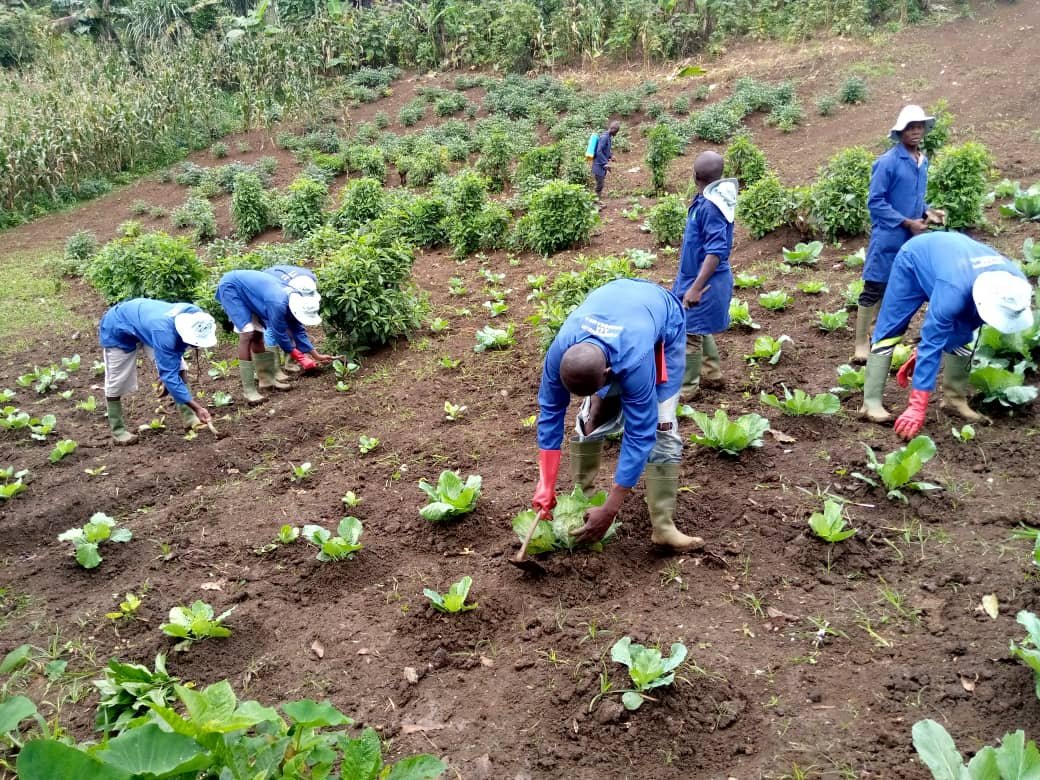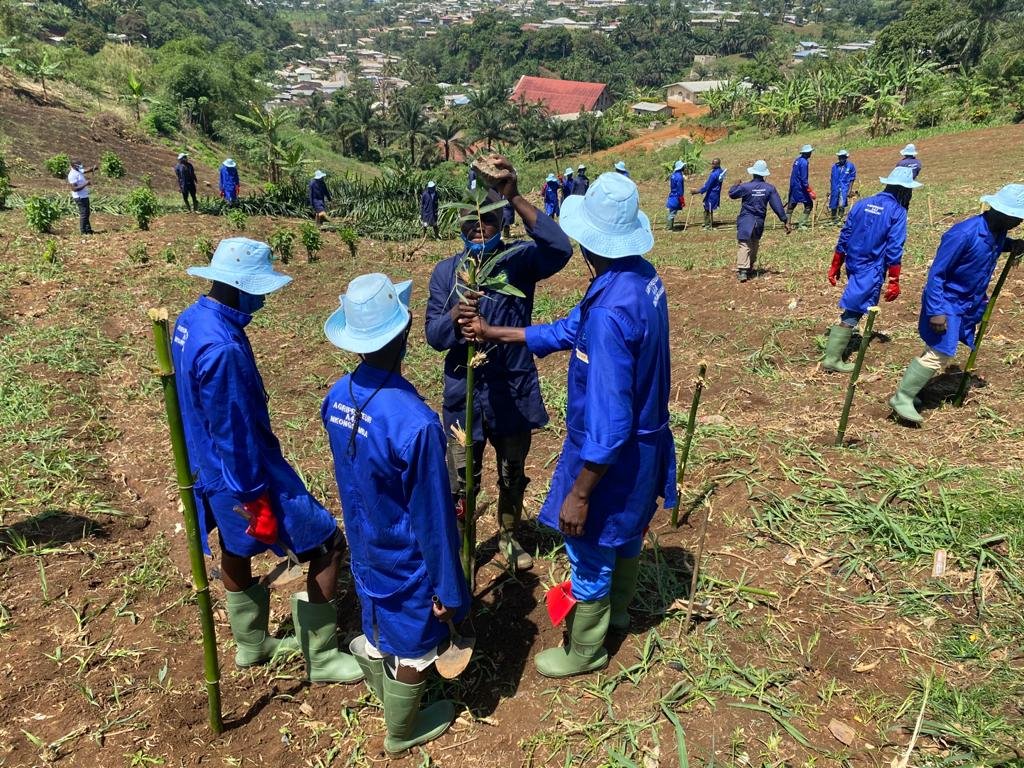
Rehabilitating
Incarcerated Youth
A series of field visits and stakeholder discussions in Cameroon during the COVID pandemic revealed a disturbing trend: evaporating remittances, food insecurity, unemployment, and increasing poverty were leading to youth delinquency, higher frequencies of juvenile crime and substance abuse, increasing numbers of youth being recruited to violent extremism, and elevated rates of incarceration and recidivism. Prisons were becoming saturated with new recruits, in particular unemployed youth and internally displaced people (IDPs) fleeing hardship, violence and insecurities of the Anglophone and Boko Haram crises.
Agriculture for Africa (A4A) was against this backdrop and following months of ideation with key US partners--Future Farmers of America, 4-H--and national stakeholders--Young African Leaders Initiative (YALI) alumni, Nkongsamba Prison authorities, Ministry of Agriculture and Rural Development, and Ministry of Livestock, Fisheries and Animal Industries-- Agriculture for Africa (A4A).
A4A is a US/Cameroon organization with programs in agriculture, entrepreneurship, social justice, and education. Working in partnership within the public and private sectors, and harnessing the power of the markets, A4A empowers vulnerable youth to lead productive lives by providing a wraparound agricultural leadership and rehabilitation program that capitalizes on mentorship, training and group activities.
During an October 2021 site visit to Nkongsamba Principal Prison, the Prison Director, challenged A4A to pilot its model in his Prison with an initial cohort of 20 incarcerated youth. In the midst of the COVID pandemic and a dry planting season, A4A accepted this challenge and A4a’s Rehabilitating Incarcerated Youth program was launched.
A4A’s Agripreneurs
-
A cohort of 20 incarcerated youth began the A4A “Agripreneur” journey.
A prison chicken coop was transformed into a classroom, with the Prison bus and guards overseeing field work on 2000 sq meters of donated land. These open air training sites ensured A4A could operate in conformity with national COVID health protocols.
Agripreneurs, most of whom had never worked in the agricultural sector, began classroom and field based training to learn about the factors and steps to production.
Within four months the Prison Director and Ministry evaluations demonstrated significant participant progress in technical understanding, confidence, mentoring and leadership skills. Institute of International Tropical Agriculture’s (IITA) assessment: “90% of the first cohort of 20 Agripreneurs demonstrated more learning than those who have received training over 5 years” while Local Youth Corner, Cameroon noted “A4A is ready for replication and expansion—Agripreneur confidence, morale and commitment has exceeded expectations.”
-
A4A was given a new challenge: launch a second cohort of 30 incarcerated youth during the second harvest cycle add a livestock, fisheries and animal husbandry production opportunity, and this time on 5,000 square meters of the Prison’s land. Cohort 2 began the Agripreneur journey with new modalities for teaching as Cohort 1 Agripreneurs served as trainers and role models to the new cohort.
Specific Activities
Classroom education: Regenerative agriculture and short cycle production methods for select crops including maize, tomatoes, cabbage, pepper, lettuce, soya beans, and training for poultry, pigs and fish farming.
Field methods: Application of sustainable classroom learning to eco-friendly practice including clearing, planting, harvesting, and integrated pest management.
Curriculum development, pedagogical approach, evaluation: Informational visuals, handbooks, workbooks, and monitoring and evaluation protocols targeting bilingual participant base with varying educational background and opportunities to unify youth through sports and peace education.
Leadership, sports, teamwork and confidence building: Positive youth development, Sports for Resilience model, and an actionable framework for socio-economic reinsertion.
Entrepreneurial mindset and competencies: Start-up competencies (recognizing and seizing opportunities, developing a business model, plan and pitching) , personal and social competencies (people skills, problem solving, activity planning) and post-harvest business planning, and market strategy., business management, marketing and financial management.
AgriStars: A competition to pitch a business ideas on a strong agricultural value proposition to an expert panel for implementation over a 6-month cycle, while demonstrating aptitude, strengths and skills and win an opportunity for a cash prize and mentorship.
Credit: Building upon lessons learned from AgriStars, link certified Agripreneurs to credit and loan services (includes innovations in assessing collateral and building credit worthiness of vulnerable youth).
The 18-month timeline allowed for trials in dry and rainy seasons and engaged fifty incarcerated youth with varying language, educational and socioeconomic backgrounds, and an opportunity for pitching a concept for funding. Cost recovery innovations have been integrated into the second trial phase with harvest monetized, sold and returns reinvested into A4A to buy field inputs.
discover our PARTNERS




